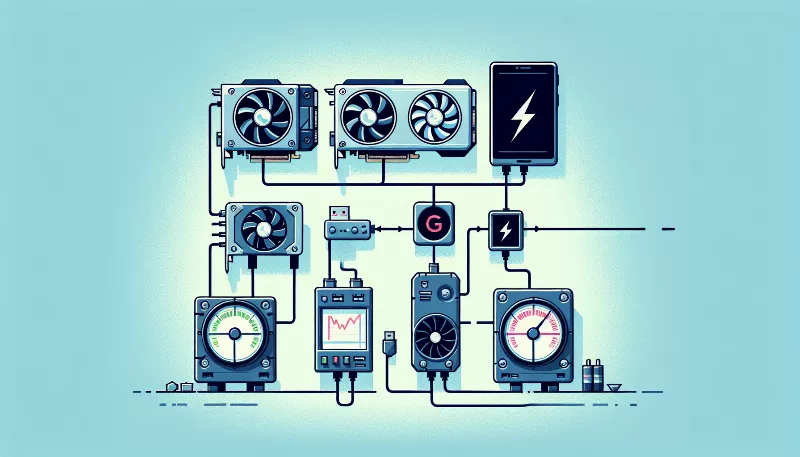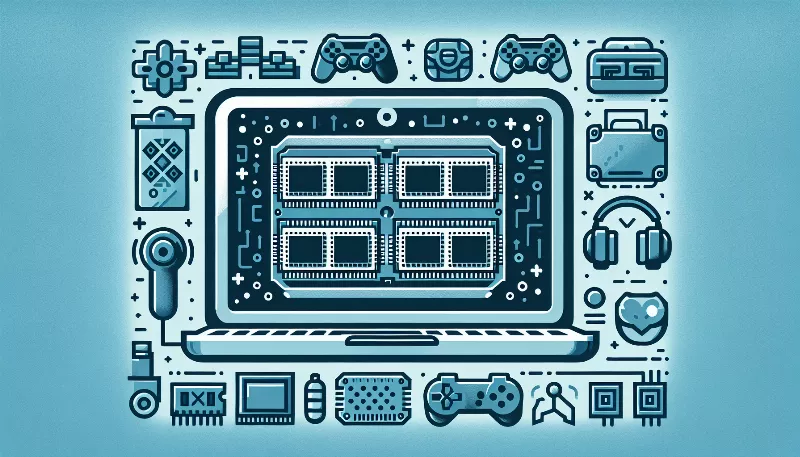How do the latest mobile GPUs compare to their desktop counterparts in terms of power and efficiency?
Discover the performance showdown between mobile GPUs and desktop graphics. Get insights on power, efficiency, and gaming on-the-go!

Introduction to Mobile vs. Desktop GPU Landscape
As technology continues to advance at a breakneck pace, the line between mobile and desktop graphics processing units (GPUs) is becoming increasingly blurred. The latest mobile GPUs are not just about saving power; they're about delivering desktop-class performance in the palm of your hand. Enthusiasts and professionals alike are keenly observing this evolution, as the implications for gaming, productivity, and creative work are immense.
Performance: A Tightening Race
When it comes to raw power, desktop GPUs have traditionally held a significant lead over their mobile counterparts. However, the latest mobile GPUs are closing the gap. With companies like NVIDIA and AMD pushing the envelope with their respective mobile GPU offerings, we're seeing a new breed of mobile GPUs that are capable of handling intensive tasks like 3D rendering, complex computations, and high-fidelity gaming.
Take, for example, NVIDIA's GeForce RTX 30 series for laptops. These chips bring the power of ray tracing and AI-driven graphics enhancements to portable devices. Similarly, AMD's Radeon RX 6000M series offers competitive performance with its RDNA 2 architecture. While desktop GPUs still outperform in terms of sheer horsepower, the difference is no longer as stark as it once was.
Efficiency: The Mobile Advantage
Where mobile GPUs truly shine is in their efficiency. Designed to operate within the thermal and power constraints of portable devices, these GPUs are engineered to deliver the best performance per watt. This means that for every unit of power consumed, mobile GPUs are often able to achieve more in terms of output compared to their desktop siblings.
Manufacturers achieve this through various means, such as optimizing the chip design for lower power consumption, employing advanced manufacturing processes that reduce the size of transistors, and implementing dynamic scaling technologies that adjust the performance based on the task at hand. As a result, mobile devices can offer sustained performance without the need for bulky cooling solutions or drawing excessive power.
Thermal Considerations: Keeping Cool Under Pressure
Thermals are a critical factor when comparing mobile and desktop GPUs. Desktop GPUs benefit from larger, more robust cooling systems, allowing them to maintain high performance levels for extended periods. On the other hand, mobile GPUs must operate within the confined spaces of laptops and tablets, which limits the size and effectiveness of their cooling solutions.
Despite these challenges, mobile GPU manufacturers have made significant strides in thermal management. Through clever design and materials, such as vapor chambers and graphite heat spreaders, mobile devices are better equipped to handle the heat generated by powerful GPUs. This has allowed mobile GPUs to sustain high performance levels that were once thought impossible for such small form factors.
Future Outlook: Bridging the Gap Further
The trajectory of GPU development suggests that the gap between mobile and desktop GPUs will continue to narrow. With advancements in chip design, power efficiency, and thermal management, future mobile GPUs may rival desktop GPUs not just in efficiency but also in performance. This is an exciting prospect for gamers and professionals who desire the power of a desktop in a more portable package.
In conclusion, while desktop GPUs still hold the crown for the ultimate performance, the latest mobile GPUs are hot on their heels, offering an impressive blend of power and efficiency. As we look to the future, the distinction between mobile and desktop GPUs may become a matter of form factor preference rather than a compromise on capability.










